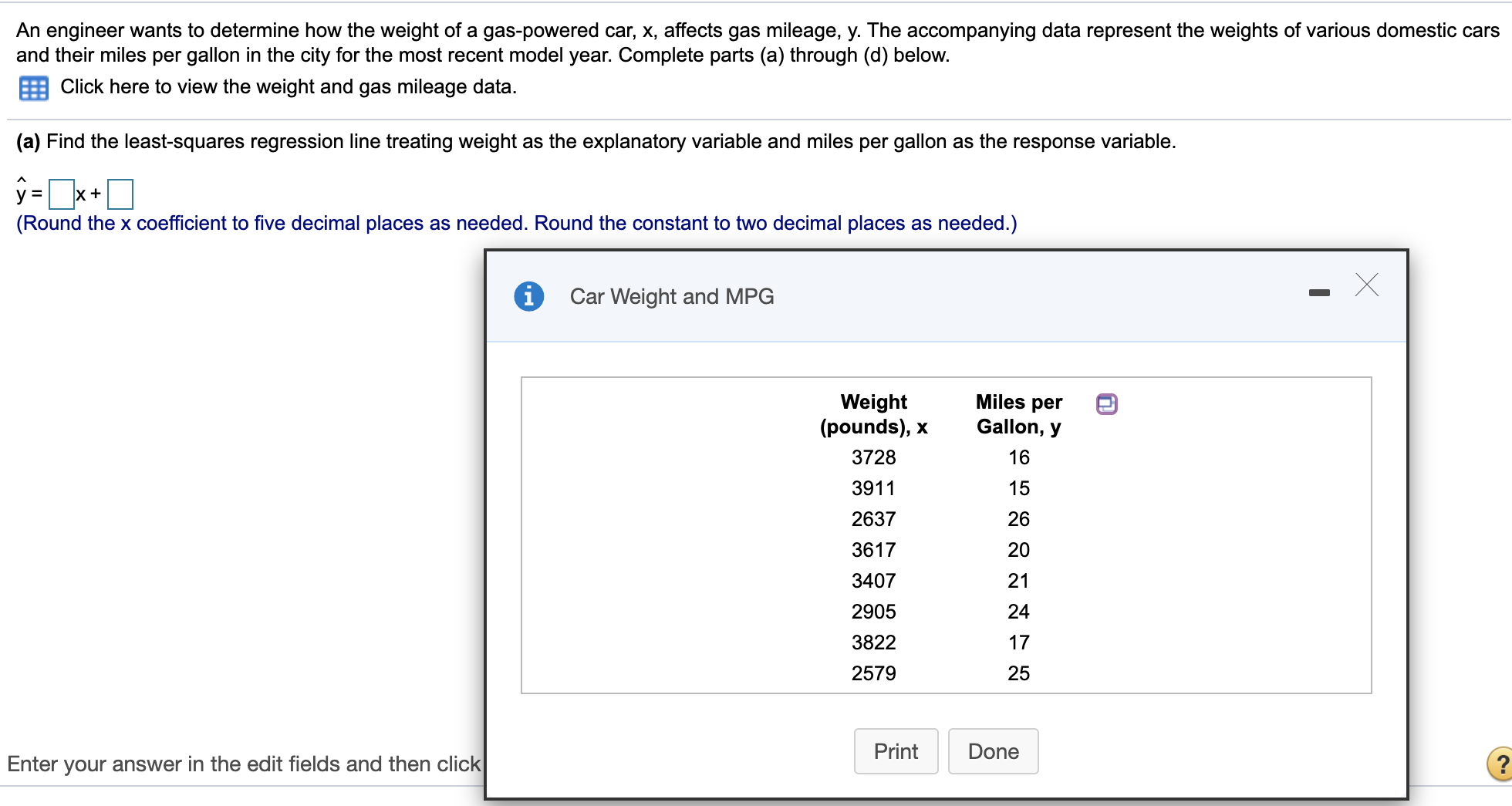An engineer wants to determine how the weight of a gas-powered car, x, affects gas mileage, y. The accompanying data represent the weights of various domestic cars and their miles per gallon in the city for the most recent model year. Complete parts (a) through (d) below. Click here to view the weight and gas mileage data. (a) Find the least-squares regression line treating weight as the explanatory variable and miles per gallon as the response variable. x + (Round the x coefficient to five decimal places as needed. Round the constant to two decimal places as needed.) Car Weight and MPG Miles per Weight (pounds), x Gallon, y 3728 16 3911 15 2637 26 3617 20 3407 21 2905 24 3822 17 2579 25 Print Done Enter your answer in the edit fields and then click
Correlation
Correlation defines a relationship between two independent variables. It tells the degree to which variables move in relation to each other. When two sets of data are related to each other, there is a correlation between them.
Linear Correlation
A correlation is used to determine the relationships between numerical and categorical variables. In other words, it is an indicator of how things are connected to one another. The correlation analysis is the study of how variables are related.
Regression Analysis
Regression analysis is a statistical method in which it estimates the relationship between a dependent variable and one or more independent variable. In simple terms dependent variable is called as outcome variable and independent variable is called as predictors. Regression analysis is one of the methods to find the trends in data. The independent variable used in Regression analysis is named Predictor variable. It offers data of an associated dependent variable regarding a particular outcome.

Trending now
This is a popular solution!
Step by step
Solved in 2 steps with 2 images




